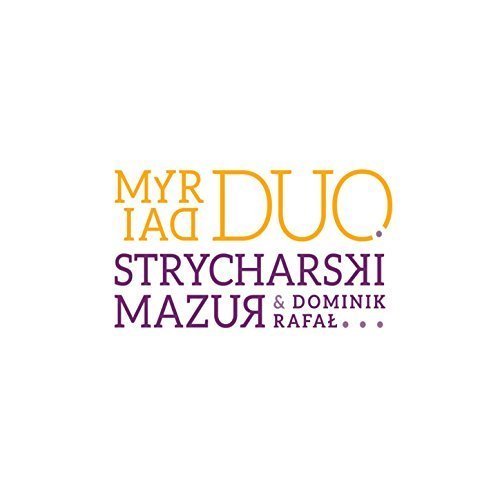Trio Braamdejoodevatcher - Quintet (2010/2020)
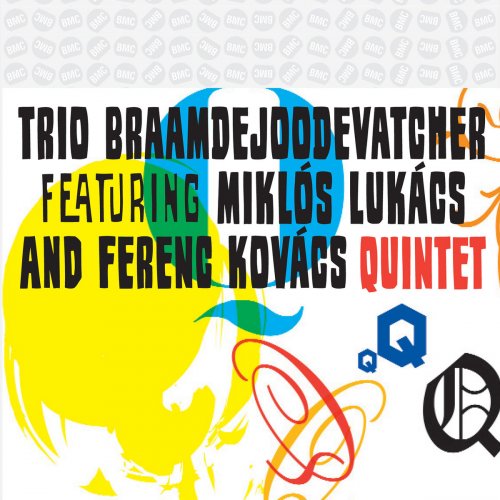
Artist: Trio Braamdejoodevatcher
Title: Quintet
Year Of Release: 2010/2020
Label: BMC Records
Genre: Jazz
Quality: FLAC (tracks)
Total Time: 56:55 min
Total Size: 318 MB
WebSite: Album Preview
Title: Quintet
Year Of Release: 2010/2020
Label: BMC Records
Genre: Jazz
Quality: FLAC (tracks)
Total Time: 56:55 min
Total Size: 318 MB
WebSite: Album Preview
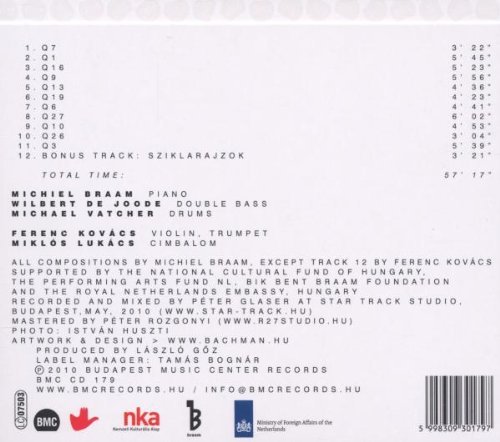
Tracklist:
01. Q 7
02. Q 1
03. Q 16
04. Q 9
05. Q 13
06. Q 19
07. Q 6
08. Q 27
09. Q 10
10. Q 26
11. Q 3
12. Sziklarajzok (Bonus Track)
For more than twenty years, the Dutch from Braamdejoodevatcher have been shining on the European scene with the power and radicality of their trio. The pianist and composer Michiel Braam worked with Han Bennink, as did the prodigious double bassist Wilbert de Joode who amazes with the diversity and the short elegance of his playing. Braam is also the leader of the great ensemble Bik Bent Braam, where we find American drummer Michael Vatcher, who worked extensively with Michael Moore before moving to Amsterdam.
Such collaborations will inevitably bring to mind Clusone 3, the formation of Moore and Bennink, a true figurehead of Dutch improvised music. We actually find in Braamdejoodevatcher this immoderate taste for freedom and concise themes, which Michiel Braam sometimes compares to bonsai… But this very egalitarian trio brings a different touch, notably by the virulence and the dryness of the rhythmic relationship between its members , as well as their propensity to surround themselves with creative guests. Two years ago, Quartet, the first part of the Q project, appeared with Michael Moore, Mats Gustafsson, François Houle and Taylor Ho Bynum as guests.
It is now in Quintet, with the two Hungarian musicians Ferenc Kovacs on violin and trumpet and the inescapable Miklos Lukacs with cymbalum that the trio continues to explore the precise and refined writing of Michiel Braam in these Q Project. The approach is of course different, and is sometimes found close to traditional music so dear to these two musicians accustomed to BMC productions [1]. In the composition "Q16", in particular, already featured on Quartet, Kovacs' violin transports Braam's music to the sweetness of Central Europe. In the same way, "Q13", solidly held by the frank double bass and sometimes reduced to its simple pulsation by De Joode, is a slow progression towards fragrances of Vienna "second school", played by a nonchalant piano which is sometimes lost between the strings struck with the cymbalum [2]. Lukacs, impressive just in time, places his cymbalum, like the harp, in this category of instruments unusual in jazz and which counts few (Lukacs is certainly the only one!) Of first-rate improvisers despite endless possibilities . Lukacs brings a lot to the general color of the album, opens tracks, works the density of the strings while accentuating the polyrhythm with a delightful success ...
To this very interesting work on the sound mass, as we can hear it on the composition "Q7", the two Hungarians bring a new relief, made of the tangling of striking and strings and mimicry between piano and cymbalum , carried by an urgent exchange between drummer and bass player. Here and there we think we catch a few snatches of Bartok, or the splinters of a battered groove ("Q26") in a creative process that does not prohibit any influence.
Quintet is a very interesting illustration of what improvised music can be in its most immediate conception, when it regenerates in contact with musicians with different personalities. This solid Dutch trio shows that listening is the key to music in perpetual evolution. The result is organic, sometimes dazzling, as on this "Q1" where the dovances of Kovacs support a very deliberate rhythmic deluge. It stands out as obvious to those who taste the poetry of instant exchanges.
Such collaborations will inevitably bring to mind Clusone 3, the formation of Moore and Bennink, a true figurehead of Dutch improvised music. We actually find in Braamdejoodevatcher this immoderate taste for freedom and concise themes, which Michiel Braam sometimes compares to bonsai… But this very egalitarian trio brings a different touch, notably by the virulence and the dryness of the rhythmic relationship between its members , as well as their propensity to surround themselves with creative guests. Two years ago, Quartet, the first part of the Q project, appeared with Michael Moore, Mats Gustafsson, François Houle and Taylor Ho Bynum as guests.
It is now in Quintet, with the two Hungarian musicians Ferenc Kovacs on violin and trumpet and the inescapable Miklos Lukacs with cymbalum that the trio continues to explore the precise and refined writing of Michiel Braam in these Q Project. The approach is of course different, and is sometimes found close to traditional music so dear to these two musicians accustomed to BMC productions [1]. In the composition "Q16", in particular, already featured on Quartet, Kovacs' violin transports Braam's music to the sweetness of Central Europe. In the same way, "Q13", solidly held by the frank double bass and sometimes reduced to its simple pulsation by De Joode, is a slow progression towards fragrances of Vienna "second school", played by a nonchalant piano which is sometimes lost between the strings struck with the cymbalum [2]. Lukacs, impressive just in time, places his cymbalum, like the harp, in this category of instruments unusual in jazz and which counts few (Lukacs is certainly the only one!) Of first-rate improvisers despite endless possibilities . Lukacs brings a lot to the general color of the album, opens tracks, works the density of the strings while accentuating the polyrhythm with a delightful success ...
To this very interesting work on the sound mass, as we can hear it on the composition "Q7", the two Hungarians bring a new relief, made of the tangling of striking and strings and mimicry between piano and cymbalum , carried by an urgent exchange between drummer and bass player. Here and there we think we catch a few snatches of Bartok, or the splinters of a battered groove ("Q26") in a creative process that does not prohibit any influence.
Quintet is a very interesting illustration of what improvised music can be in its most immediate conception, when it regenerates in contact with musicians with different personalities. This solid Dutch trio shows that listening is the key to music in perpetual evolution. The result is organic, sometimes dazzling, as on this "Q1" where the dovances of Kovacs support a very deliberate rhythmic deluge. It stands out as obvious to those who taste the poetry of instant exchanges.
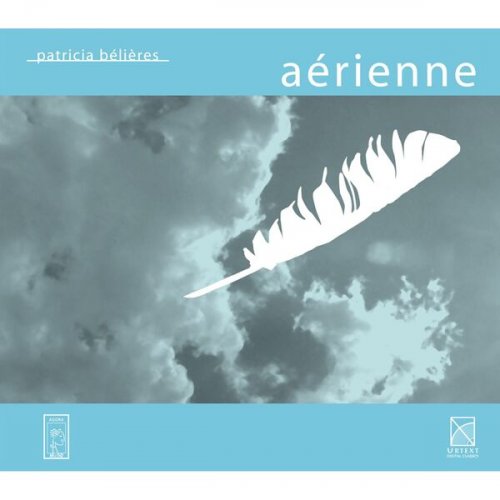

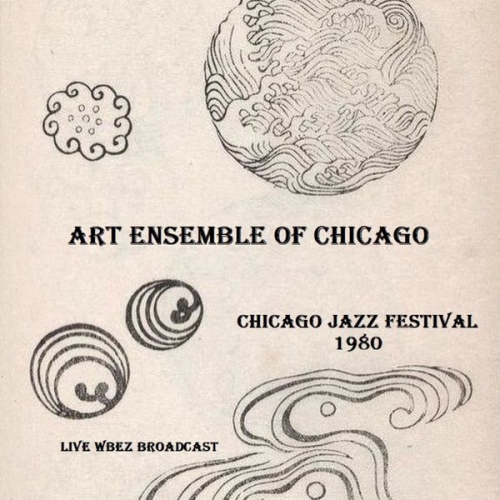
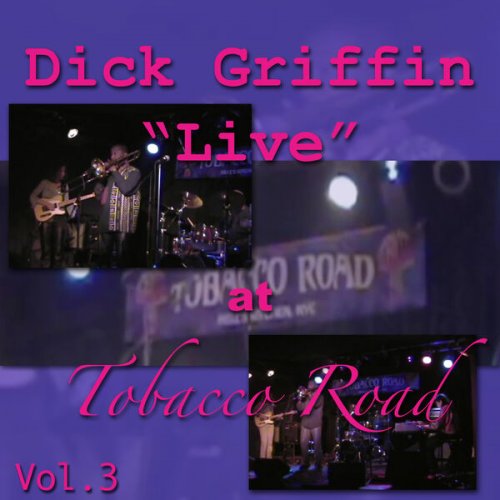


![Movement in the City - Movement in the City 3 (2025) [Hi-Res] Movement in the City - Movement in the City 3 (2025) [Hi-Res]](https://img.israbox.com/img/2026-01/13/iawdgavhv5s7xdbiz4s2fywa7.jpg)
